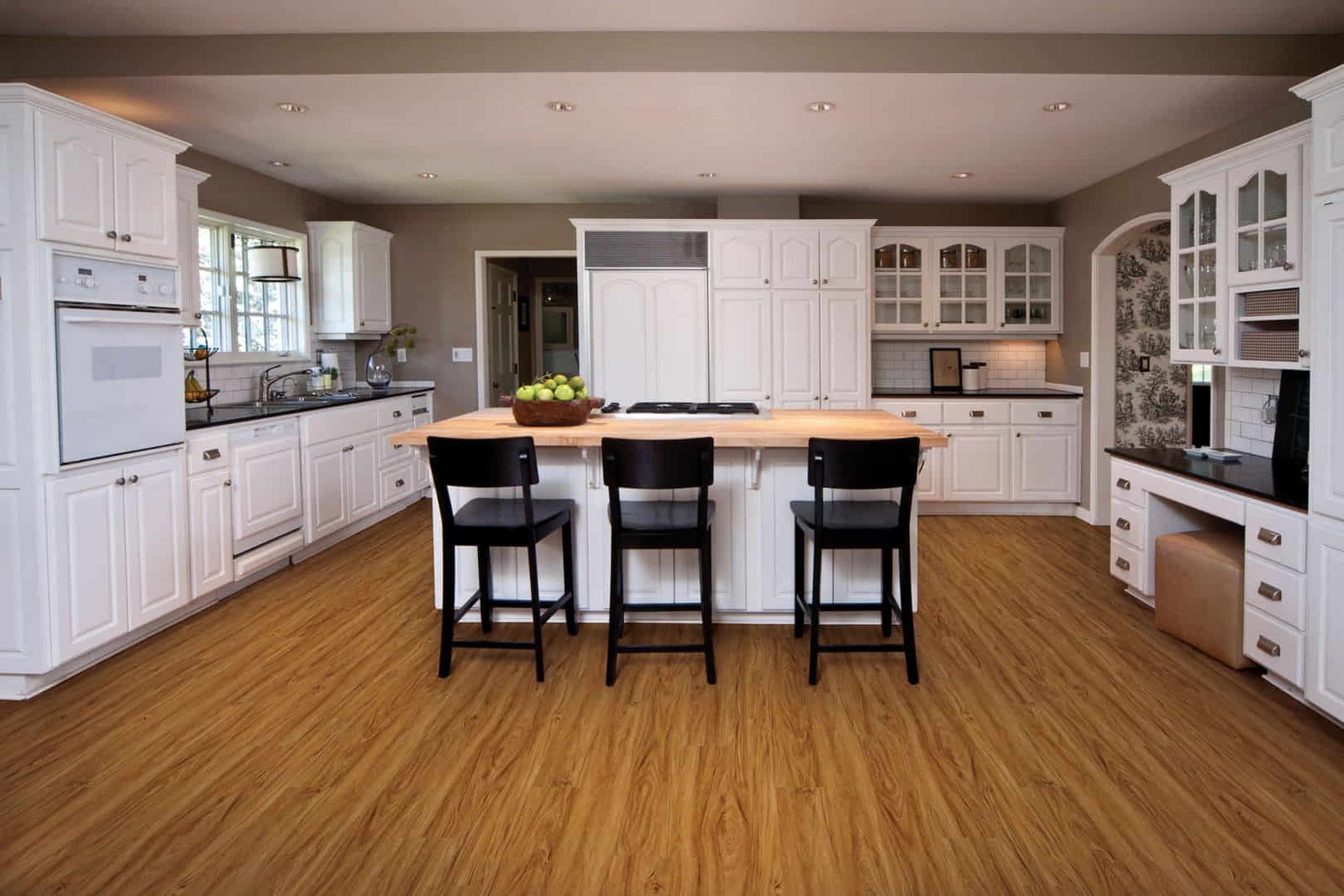Considering a new floor in your kitchen? There are several durable kitchen flooring options. The materials you can use are Natural stone, Engineered wood, Linoleum, vinyl, and linoleum. Read on to learn more about these choices. There is something for everyone. Just be sure to read all installation instructions before beginning your new flooring project.
Different Kitchen Flooring Options
Listed below are some different types of flooring options for the kitchen and the advantages and disadvantages of each material. Choose the best material for your kitchen and budget.
Also, read about tropical decorating ideas.
1. Natural stone
If you’re looking for a kitchen flooring option that’s going to last for years, you should consider natural stone tile. Whether you want a sleek, modern floor, or a durable surface that looks good in any setting, natural stone tile offers many advantages. Slate tiles, for example, are stain-resistant and extremely durable. Marble and granite are also beautiful choices, but they can get slippery when wet.
Another reason why natural stone is an excellent choice for kitchen floors is the luxury it conveys. A kitchen with natural stone flooring can signal opulence to potential buyers. But it can also be porous and susceptible to liquid stains. For this reason, you’ll need to apply stone sealers annually to create an invisible layer of protection. While the stone is extremely durable, it should be installed professionally. Adding a stone sealer to a stone floor can also increase its beauty and value.
2. Engineered wood
There are many benefits to having engineered wood flooring in your kitchen, but if you’re wondering which type is best for your space, look no further than wood. Engineered wood is constructed with a veneer of real hardwood attached to solid plywood or oriented strand board slab. This construction produces a much more stable and durable product. Engineered wood is also more resistant to moisture and warping than other types of hardwood flooring.
Hardwood flooring can be very expensive, but engineered wood planks are a good choice if you’re looking for a warm, welcoming feel. It is also very low-maintenance, and you can refinish it a few times without worrying about any stains or spills. Unlike solid wood, engineered wood is also more stable due to the plywood core. Engineered wood is best for areas with uneven subfloors, as it’s less sensitive to temperature and humidity.
3. Linoleum
When deciding between vinyl and linoleum for your kitchen flooring, you should consider the environmental benefits of linoleum. It is composed entirely of renewable and biodegradable materials like wood flour, linseed oil, and cork. Despite its durability, linoleum is not 100% scratch-resistant. It can be damaged by high humidity and requires periodic damp mopping to maintain its appearance.
The versatility of linoleum makes it an excellent choice for kitchen flooring. It is available in tiles and sheets, and the material is flexible and easy to install. It is also available in different colors. To add style to your kitchen flooring, you can mix and match different shades of the same color. Linoleum flooring is also suited to a variety of designs, and you can add a border to separate different work areas.
While linoleum is an inexpensive and durable kitchen flooring option, it does require periodic sealing to prevent stains and moisture damage. Manufacturers of linoleum flooring use a protective coating to protect the floor from damage. You’ll need to seal the floor every three to ten years depending on the amount of use. This can be done through a simple sealant, which comes pre-applied from the factory.
4. Vinyl
There are many pros and cons to vinyl as a kitchen flooring option. It is easy to clean and maintain, and you can keep the floor dust-free with regular sweeping or vacuuming. For tougher stains, a mop with warm water and neutral detergent should do the trick. Compared to other flooring options, vinyl is more comfortable and provides better insulation. This is especially important if you spend a lot of time in the kitchen.
Although it’s more affordable than hardwood, you’ll need to pay close attention to the durability of vinyl for your kitchen. You should avoid using solid detergents, bleach, or scouring pads on it. These materials may scratch or damage the floor. Generally, kitchens are semi-moist or sporadically moist, but vinyl flooring isn’t prone to this type of moisture. Wood flooring is also a good option for those on a budget.
To Sum Up!
There are many different types of kitchen flooring. The type of flooring you choose depends on your needs and your budget. If you’re looking for a durable, long-lasting option, it’s still best to consult with a handyman to choose the right type for your home. A professional can give you advice on the best materials for your home.


